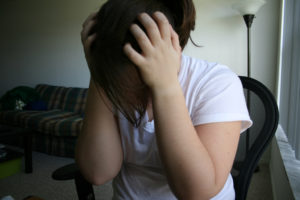
Image courtesy of: Morgan R. Turner
Anxiety has surpassed depression is the number one mental health issue today. And unfortunately, there aren’t a lot of great treatment options outside of dangerous and addictive medications like benzodiazepine’s. However, with the rise in popularity, a new class of health supplements called nootropics have shown good potential in being able to better relieve anxiety without the negative side effects of medications.
In his article from Nootropix.com, they give a break down of the top 14 nootropic supplements you may want to try to help re leave anxiety:
“As we collect evidence provided to us by our ever-expanding group, we’ve come up with a few good remedies. Anxiolytic drugs are known to “relieve anxiety”.[1] Many of us suffer from anxiety ranging from slight to severe impairment. It is wise to note that some drugs, such as Bacopa, have enhanced efficacy after chronic administration.[2] Others, such as Tenoten, are applied sublingually and can be used to treat acute anxiety.[3] Any of the information here is not to be used or substituted for medical advice.
Bacopa

Bacopa monnieri (also known as Brahmi) is one of the most important herbs in Ayurvedic medicine. It has been used for centuries as a mental tonic originating in India.
Bacopa has been shown in studies to relieve anxiety, improve cognition, and enhance memory formation.[4] [5] In a rat study, Bacopa increased the levels of serotonin and enhanced the gene expression of serotonin transporters[6]. Studies have shown a relationship between high levels of serotonin and positive mood.[7] [8]
Bacopa also appears to have an adaptogenic effect by reducing the biochemical effects of stress.[9]
To fully appreciate the positive effects of Bacopa, it needs to be taken consistently. Studies have shown more improvement as time passes. [10]
Ashwagandha

Withania somnifera, commonly known as Ashwagandha, is a popular herb used in Ayurvedic medicine. In Sanskrit, Ashwagandha means “the smell of a horse”, because of its unmistakable smell. It is also believed to give vitality and the “strength of a stallion”.
Ashwagandha is believed to act as a neuroprotector, anxiolytic, anti-inflammatory, thyroid-booster, and libido enhancer.
Ashwagandha activates GABA-A receptors, the mechanism of action responsible for its anxiolytic and sleep-inducing effects.[11]
It has been shown to be as effective as fluoxetine for obsessive-compulsive disorder (OCD) in a mice study.[12]
L-Theanine

L-Theanine is a natural amino acid contained in green tea. Most store-bought teas contain minimal amounts of L-Theanine, however, concentrations are greater in teas such as matcha, gyokuro, and kabusecha.L-Theanine is structurally similar the neurotransmitters glutamate and GABA.[13] L-Theanine is also a neuroprotective agent[14] which increases the amounts of serotonin, dopamine, and GABA in various areas of the brain.[15] It’s commonly used with stimulants, — like caffeine or amphetamines —, to reduce side effects, but it is also effective by itself.
Inositol
Inositol is a sugar involved in cellular signaling and as a component of cell membranes. There are nine different inositol molecules. The most abundant of these being myo-inositol.
Inositol was once considered a B vitamin (formerly Vitamin B8). It was later found to be producible by the human body, disproving it as an essential nutrient. It is naturally found in small quantities in milk products, fruits, and vegetables.
Research shows high dose Inositol supplementation (18 g) was as effective as fluvoxamine (150 mg) in decreasing the number of panic attacks[16] and reducing the symptoms of obsessive-compulsive disorder (OCD). [17]
Phenibut

Phenibut is a gamma-aminobutyric acid (GABA) derivative.
GABA is the major inhibitory neurotransmitter in the brain. The mechanism of action of conventional anxiolytics, hypnotics, and sedatives (such as benzodiazepines, barbiturates, and alcohol) increase GABA levels. This is what gives them anti-anxiety, sleep-inducing, tranquilizing, and anticonvulsive effects.
Phenibut was developed in the Soviet Union in the 1960s as a non-sedative alternative to benzodiazepines. Phenibut is part of the Russian cosmonaut medical kit as a treatment for stress.
Phenibut activates GABA-B receptors[18] and boosts dopamine levels.[19]
Picamilon

Picamilon is another Russian nootropic made by combining niacin (vitamin B3) and GABA. This allows Picamilon to cross the blood–brain barrier[20] and have anxiolytic and vasodilating[21] effects.
It is used in Russia as a treatment for anxiety, depression[22], alcoholism[23], and brain damage.[24]”
Keep in mind you can also “stack” or combine these different nootropics together to increase their effectiveness. To continue the list of top 14 nootropics, finish reading the article over on the nootropix.com website by clicking the link below:

Image courtesy of: Morgan R. Turner